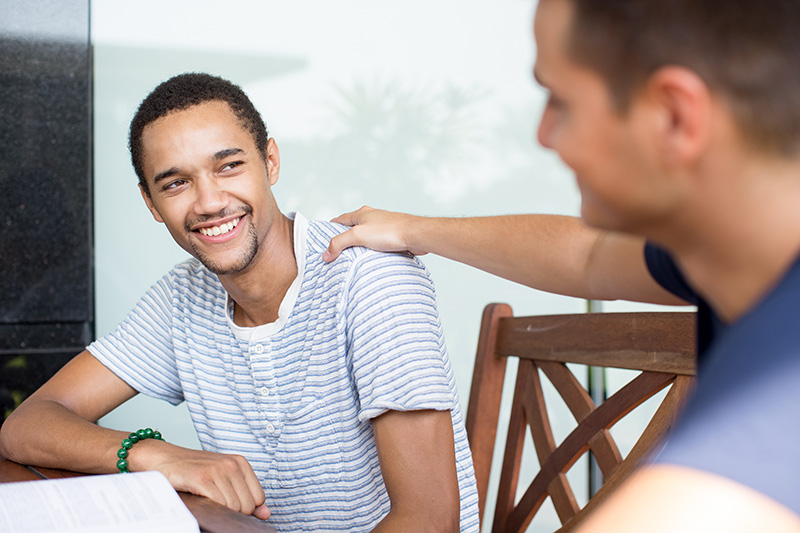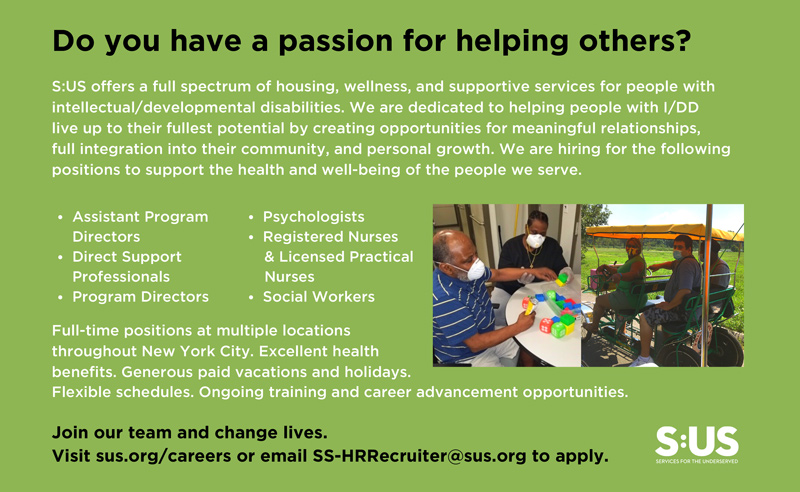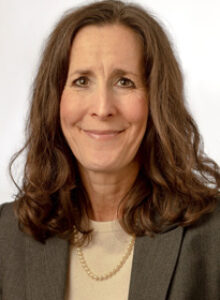The successful British author Matt Haig spent a lot of time in self-reflection at the height of the pandemic. During this time, at 46 years of age, he was newly diagnosed with Attention Deficit Hyperactivity Disorder (ADHD) along with having Autism Spectrum Disorder (ASD). In light of being diagnosed only recently in middle age, he understood much more his lifelong enthusiasm and propensity to adhere to routine along with his chosen profession of writing fiction which requires a regular daily practice for him. He viewed his lifetime habits as ways to cope with feeling “…a little bit different without ever having understood why…” prior to his diagnoses.1 Quieter time spent during the pandemic along with practicing more self-compassion has helped him adjust. He shared, “One of the few great things about middle age is you have an acceptance of who you are and a kindness toward yourself. In the olden days left-handed people were told to hold the pen with their right hand, but they were always left-handed; maybe it’s the same with autism. Maybe there’s a lot of things where you try to be a round peg and you’re actually a square peg and that’s fine. You just therefore create more square holes.”1 Cultivating self-compassion along with routine and habits that help promote acceptance and comfort helped the author Matt Haig adjust to his new diagnoses. These qualities of self-compassion, acceptance, kindness, and comfort have helped others live with and share with their community their diagnosis of ASD, an Intellectual and/or Developmental Disability (I/DD), with their family members and loved ones who support them.

When interviewing people supported by Services for the UnderServed (S:US) who live with ASD or I/DD and their family members, these similar themes of acceptance, self-compassion, empathy, sensitivity, and kindness were mentioned often. Valerie, a woman who has I/DD and attends an S:US Day Habilitation Program in Brooklyn, NY, shared, “…having I/DD doesn’t bother me. We’re all human beings. We all have needs and it doesn’t bother me. I live with it, I deal with it the best that I can, and I don’t let it affect me. Nothing else to do. When something bothers me, I give myself space, quiet time, I stay home…listen to some music, mostly gospel – it makes me happy and motivates me. I will also tell my staff and talk to Yvette (the Program Director at my day habilitation program). When I’m upset, I go to them and tell them; they’ll listen to me and help me with my situation, they talk to me and that helps.” Being around others who listen, care and make space for feelings or hard moments that arise, helps people with disabilities. Dr. Robert Joseph, an S:US Psychologist, stated “…all people are different…have different strengths and weaknesses. We need to accept our differences and make space for our differences.”
In the article “Sharing an Autism Diagnosis with Family and Friends,” psychologist Mandi Silverman, Psy.D., notes, “We often say that children with autism are like snowflakes, no two are the same. Just because one child with autism looks and sounds one way does not mean that another child will.”2 Each person with ASD has a spectrum of behaviors, with different types of symptoms, onset, and level of severity. It is important to seek out good medical care, therapeutic treatment to build skills for the person with the disability, and connect to resources and social support. Hope, a mother who has an adult son with ASD and lives in a home managed by S:US reflected, “It is important to let go of ASD stereotypes. One needs to be flexible and creative. All techniques do not work for all people with ASD. My son is different like everyone else.” If people in one’s family or social circle do not understand the diagnosis, feel overwhelmed or have difficulty coping with the diagnosis, then accompanying loved ones for appointments with medical and treatment providers, along with becoming more informed through good psychoeducation, can help people cope, adjust, learn more about enhancing the skills and capabilities of the person living with the disability, along with how best to provide support.2
Jajaida Gonzalez, Vice President of S:US’ Day Habilitation Services, shares, “It is important to see abilities in everyone; challenges of a person evolve and shift since a diagnosis was given to them, whether it was recently given or from years ago. A person at 25 years of age can have a lifetime, many years of education and good support and can become so capable. Family members (and the wider community) can carry the initial experience of the diagnosis throughout their lives. They need to see or be open to seeing the evolution, shifts and growth that can happen throughout the life of their loved one who lives with a disability and realize all of the possibility… that a person with a disability can embody, can become.”
Jajaida models this sense of open-mindedness and open-heartedness, empathy, and compassion for participants who attend S:US’ day habilitation programs, their family members and advocates, along with her staff. “People are far more than their diagnosis and symptoms. It is always better to meet the person, learn who they are now, interact with them, observe them, and to try new things with them. It is so important to meet them at the stage of life where they are now. There is a profound impact that education, support, and life experiences have on each person and helps each person learn, evolve, expand, and grow as a human being.”
For over 20 years, Yvette McBean has worked with adults with disabilities including ASD and I/DD in both residential settings and day habilitation programs at S:US. Currently, Yvette serves as the Program Director at Valerie’s day habilitation program. Over the years, Yvette has learned that “…everyone is special in their own unique way. For me – due to my creativity, patience, sensitivity, and flexibility – I am able to tap into what works for the people that I support who live with a disability. At the end of the year, I will often ask the participants of my program, ‘What do you want for the new year? What do you want to accomplish?’ I value and respect them and they are important to me. What they say matters and I, as the Program Director, plus my team of Direct Support Professionals (DSPs) try to weave in their wishes into our programming for the year.” It is with this strong sense of attunement and communication that people at her program feel acceptance, compassion, kindness, and empathy. Tasha, Valerie’s friend and another participant in the same program, feels a lot of kindness and compassion from Yvette and her staff. She shared, “There are good people here in this program and I get good support from them. They work with us, help us learn more, give us good coping skills, learn how to talk about stuff and not fight, get along with people, go on trips, learn how to cook meals like jerk chicken, and talk about relaxation and anger management. When I get mad now, I don’t fight, I talk about it and take a walk.” The coping skills that Tasha and her peers have learned from Yvette and her team of DSPs have helped them nurture a sense of acceptance, compassion and kindness for themselves, their peers, and their community.
Marcus Gutierrez, a Quality Intellectual Disability Professional (QIDP), at the same program managed by Yvette, comes to the field embodying sensitivity, respect, and awareness both as a professional and as a father of two sons with ASD. He shares, “As a staff person, I need to be really sensitive and aware of certain things for the people that I support with a disability. Some have great support, rich support systems with family, friends, and people who check up on them. And some have little to no support system which makes things really hard, magnifies everything. It makes me want to learn more and be more aware of what they deal with… be more sensitive overall to people everywhere and people living with a disability. I want to be mindful, respectful, and more compassionate of what a person deals with. As a parent, I know that my two sons need a lot of support – physically, emotionally – and they need my attention. They need my help on how to live every day, they make me want to be more responsible, more attentive to their needs and raise my awareness of how conscious I am with them. I wear many hats – teacher, supporter, parent – to support them and to help them be as integrated into society as much as possible.”
It is with kindness, compassion, mindful awareness, acceptance, and empathy that people living with a disability – whether it be ASD, I/DD, or another disability – develop coping skills, evolve, and grow towards what they want to pursue so that they can be fully integrated into their communities and the larger society. Several parents and family members who were interviewed for this article expressed that they are enormously grateful about the increase of awareness about people living in the community with ASD, I/DD, or another disability, and feel this greater sense of inclusivity, sensitivity, and ease when they encounter other people with a disability and when they are out with their loved one with a disability in their community.
In his book Books for Living, the author Will Schwalbe writes about the book Wonder, which focuses on a main character with a disability, and how it reminds us to embody kindness. He writes, “Choose kindness. Whenever there’s a choice – and we are faced with such choices almost every minute of every day – this is what the book…[Wonder]… would have us remember… the challenge after reading this book is to wonder if, in fact, we are choosing kindness – and to try to challenge ourselves to live more kindly.”3 When sharing a diagnosis of ASD, I/DD or a disability along with living with a disability, an adult needs acceptance, compassion, empathy, sensitivity and kindness in order to thrive and flourish in their milieu and in their community.
Lori Lerner, LMSW, RYT-200 hr., is Coordinator of Family and Wellness at Services for the UnderServed (S:US). Ms. Lerner may be contacted by email at llerner@sus.org or by phone at (917) 408-5366.
Footnotes
- “Inside the List” by Elisabeth Egan, The New York Times, January 15, 2023.
- “Sharing an Autism Diagnosis with Family and Friends” by Rachel Ehmke, Child Mind Institute, January 30, 2023.
- Books for Living by Will Schwalbe, Alfred A. Knopf, New York, NY, 2016.








I recently was diagnosed with both ADHD & Autism.
I was looking for ways to tell my siblings, but thus was not it, at all. Too much information. Perhaps break it down with lables.